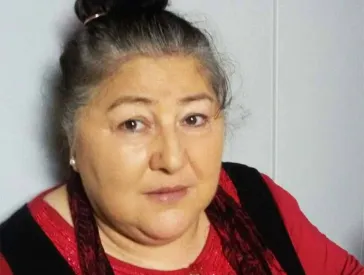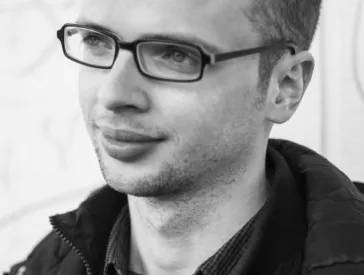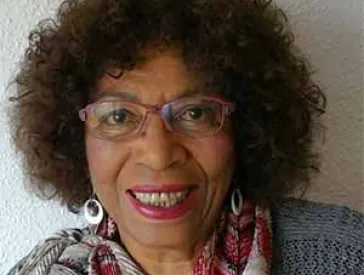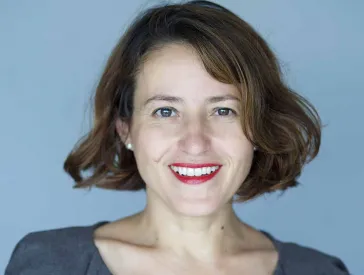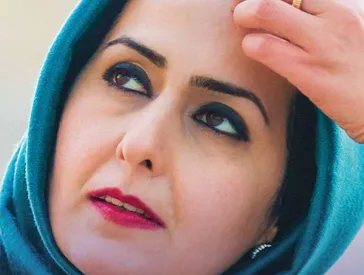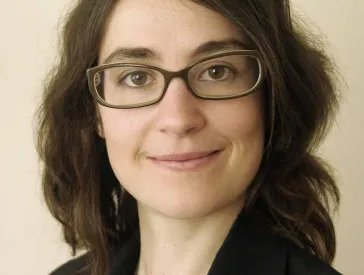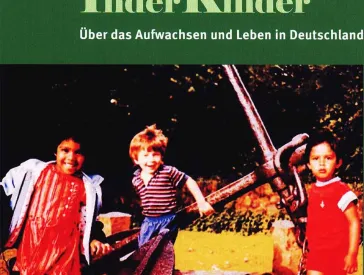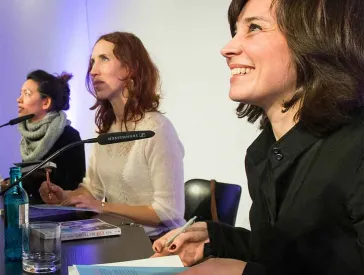InderKinder
Dealing Creatively with Ethnic Classifications
Three Questions to Urmila Goel and Nisa Punnamparambil-Wolf
Julia Jürgens
Urmila Goel and Nisa Punnamparambil-Wolf presented their book InderKinder - Über das Aufwachsen und Leben in Deutschland (Indian-Children: on Growing Up and Living in Germany, published by Drapaudi Verlag) at the Jewish Museum Academy on 20 March 2014. It was the third in a series of events on “New German Stories” where, with the aid of individual biographies, we examine Germany’s historical and current status as an immigration society. On this occasion we focused on children of immigrants from India, who gained public awareness for the first time during the “Green Card” campaign of 2000.
On 19 March 2014 Julia Jürgens conducted a short interview with the two editors Urmila Goel and Nisa Punnamparambil-Wolf and asked them the following tree questions:
What made you choose this title?
We’re referring with this title to the marginalizing “Kinder statt Inder” (children instead of Indians) campaign of the year 2000. The wordplay of InderKinder (Indian-children) is meant ironically: it was important to us to find a creative way to deal with these attributions. With the book, we want to show the varied ways that people who grew up and live in Germany handle the classification of being a child of Indian immigrants.
Book cover; Draupadi Verlag
The book consists of two parts, autobiographical stories and essays. How would you explain your concept?
The people who contributed to the book are second generation Indian immigrants. Their stories include autobiographical observations but go beyond the autobiographical too. The essays in the second part are written from an academic perspective, reflecting on what these stories and experiences might say about our society. InderKinder isn’t an academic book, however. It’s a book for anyone interested in stories of migration.
Portrait of Urmila Goel; Urmila Goel
Indians remain a less visible group at large, relative to other immigrants: are there advantages or disadvantages to not being the focus of immigration debates?
The “Kinder statt Inder” campaign and the discussions about so-called “Computer Indians” demonstrated what it means to get more attention. It’s definitely an ambivalent experience. On the one hand, people who have a familial connection to India were finally seen; they got to tell their stories. On the other hand, there was more hostility and more negative emphasis on them. The attention on Indians as a model minority – the most educated and best integrated – is also equivocal, because it can be used to denigrate other immigrant groups. We also discuss this in the book.
The questions were posed by Julia Jürgens (Academy program on migration and diversity).
Portrait of Nisa Punnamparambil-Wolf; Nisa Punnamparambil-Wolf
Citation recommendation:
Julia Jürgens (2014), InderKinder
Dealing Creatively with Ethnic Classifications. Three Questions to Urmila Goel and Nisa Punnamparambil-Wolf.
URL: www.jmberlin.de/en/node/6397
Interview Series: New German Stories (12)


